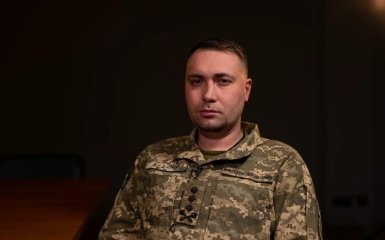Russia would like to end the war against Ukraine by the end of 2025 - the beginning of 2026 with its victory. The reason is that from the summer of 2025, it will begin to have serious problems in the economy and the need for mobilization will arise.
Points of attention
- Russia plans to end the war against Ukraine by 2026 in order to avoid economic problems and the need for mobilization.
- Experts believe that the Russian Federation has no significant chance of winning in Ukraine without the use of nuclear weapons.
- Forecasts show that Russia must achieve a conditional victory by the end of 2025, otherwise it risks losing its position on the world stage.
- The socio-psychological state of the population of both countries affects the course of the war and the strategy of conducting hostilities.
- According to the analyzes of the initiators of the countering, the Russian Federation has until the summer of 2025 to achieve significant results in the war against Ukraine.
Why the Russian Federation seeks to end the war against Ukraine by 2026
The year 2025 for them, the turn of the 25th — the beginning of the 26th — is key for them. They want to end all this because, according to their own calculations, the Russian Federation, if they do not come out of this war as conditional winners, they are in the far, let's say this, the future that can be calculated is a horizon of 30 years, - are completely out of the possibility of seeing Russia as a superpower, which is what they are striving for.

Kyryll Budanov
Head of the GUR of Ukraine
According to Budanov, Russia predicts that "all their problems will begin in the summer of the 25th year", as both the financial and economic factor and the socio-political factor will come together.
Also, according to him, the issue of shortage of soldiers in the army is becoming more and more acute in Russia.
In this period (summer of 2025 — ed.), they will face a dilemma — either to announce mobilization, or somehow to reduce the intensity of hostilities, which may ultimately be critical for them, — noted the head of intelligence.
The head of the GUR added that the socio-psychological state of the population was also affected by Ukraine's efforts to transfer hostilities to the territory of Russia.
The head of military intelligence of Ukraine, referring to Russian documents, noted that in the absence of a Russian victory by the end of 2025, only two superpowers will remain in the world - the USA and China, and the Russian Federation will have no place there.
They are clearly aware of this. This is a key period for them. Therefore, they will do everything possible to win in their understanding. Otherwise, they fly out of absolutely all world processes. All they can count on is regional leadership, and that doesn't suit them, Budanov concluded.
What will be the end of the war between the Russian Federation and Ukraine. "Buyvol" from "Azov" made its prediction
Russia has almost no chance left to defeat Ukraine on the battlefield. This was stated by the senior sergeant of the 12th special purpose brigade of the National Guard of Ukraine "Azov" with the call sign "Buffalo" in an interview with Online.UA.
As "Buyvol" notes, he does not know what Russia should do to defeat Ukraine.
The only option that can radically change the situation and save the enemy from defeat is nuclear weapons.
We already have a completely different army training. When we faced a full-scale invasion, we were prepared in one way, and now we are prepared in another way. Yes, Rashka (Russia — ed.) can capture a certain amount of territory, but it will definitely not be able to win completely without using some kind of ballistic, nuclear weapons, - noted the senior sergeant of the Azov NSU brigade.




